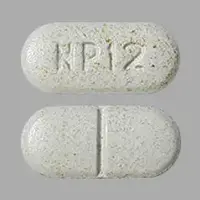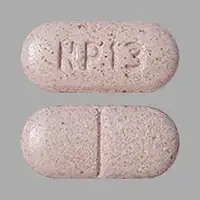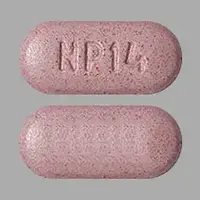Generic name: methylphenidate hydrochloride
Drug class: CNS stimulants
Dosage form: oral extended-release chewable tablet
Availability: Prescription only
Pregnancy & Lactation: Risk data available
Brand names: Concerta, Jornay pm, Quillivant xr, Ritalin, Cotempla xr-odt
What is Quillichew er?
QuilliChew ER is a chewable extended-release tablet used to treat attention deficit hyperactivity disorder (ADHD). The tablet is cherry flavored and is taken each morning. It contains methylphenidate hydrochloride, a central nervous system (CNS) stimulant.
It's not known exactly how QuilliChew ER and other methylphenidate-containing medications work in people with ADHD, but it does increase activity in the brain, especially in the areas that help regulate behavior and attention. It also helps to boost levels of dopamine and noradrenaline - two chemical messengers or neurotransmitters - by preventing their re-uptake from the space between nerve cells (neurons) in the brain. Low levels of these chemical messengers have been found in people with ADHD.
Methylphenidate-containing medications, such as QuilliChew ER, are schedule II federally controlled substances because they can be a target for people who abuse prescription medicines or street drugs. Selling or giving away QuilliChew ER may harm others, and is against the law.
QuilliChew ER was approved for use by the US Food and Drug Administration (FDA) in 2015, although the first methylphenidate-containing medication was approved many years earlier in 1955.
What is QuilliChew ER used for?
QuilliChew ER is a prescription medicine used for the treatment of ADHD. It may help increase attention and decrease impulsiveness and hyperactivity in people with ADHD.
It is not known if it is safe and effective in children under 6 years of age.
Warnings
QuilliChew ER can cause serious side effects, including:
- Abuse and dependence. This medication contains methylphenidate. QuilliChew ER, other methylphenidate containing products, and amphetamines, have a high chance for abuse and can cause physical and psychological dependence. Tell your health care provider if you or your child have (or have a family history of) ever abused or been dependent on alcohol, prescription medicines or street drugs.
- Heart-related problems, including:
- sudden death, stroke, and heart attack in adults
- sudden death in children who have heart problems or heart defects
- increased blood pressure and heart rate
Tell your health care provider if you or your child have any heart problems, heart defects, high blood pressure, or a family history of these problems.
Your healthcare provider should check you or your child's blood pressure and heart rate regularly during treatment with this medication.
Call your healthcare provider right away or go to the nearest hospital emergency room right away if you or your child has any signs of heart problems such as chest pain, shortness of breath, or fainting during treatment.
- Mental (psychiatric) problems, including:
- new or worse behavior and thought problems
- new or worse bipolar illness
- new psychotic symptoms (such as hearing voices, or seeing or believing things that are not real) or new manic symptoms
Tell your healthcare provider about any mental problems you or your child has, or about a family history of suicide, bipolar illness, or depression.
Call your healthcare provider right away if you or your child have any new or worsening mental symptoms or problems during treatment, especially hearing voices, seeing or believing things that are not real, or new manic symptoms.
- Circulation problems in fingers and toes [Peripheral vasculopathy, including Raynaud’s phenomenon]:
- Fingers or toes may feel numb, cool, painful
- Fingers or toes may change color from pale, to blue, to red
Tell your health care provider if you have or your child has numbness, pain, skin color change, or sensitivity to temperature in the fingers or toes.
Call your health care provider right away if you have or your child has any signs of unexplained wounds appearing on fingers or toes while taking this medication.
How should I take Quillichew er
- Take this medication exactly as prescribed. Your health care provider may adjust the dose, if needed, until it is right for you or your child. During dose adjustment, you or your child may still have ADHD symptoms.
- Take 1 time each day in the morning. This medication is an extended-release chewable tablet that releases medicine into your body throughout the day.
- The 20 mg and 30 mg QuilliChew ER chewable tablets are scored (bisected) and can be cut in half if needed, for you to get the right dose. QuilliChew ER 40mg is not scored (bisected) and cannot be divided.
- This medication can be taken with or without food.
- From time to time, your health care provider may stop treatment for a while to check ADHD symptoms.
- Your health care provider may do regular checks of the blood, heart, and blood pressure while taking this medication.
- Children should have their height and weight checked often while taking QuilliChew ER. Treatment may be stopped if a problem is found during these check-ups.
Dosing information
For patients 6 years and above, the recommended starting dose is QuilliChew ER 20 mg given orally once daily in the morning. The dose may be increased or decreased weekly in increments of 10 mg, 15 mg or 20 mg. Daily dosage above 60 mg is not recommended.
See the Full Prescribing Information for further details about QuilliChew ER dosing.
Before Taking
Do not take QuilliChew ER if you or your child is:
- allergic to methylphenidate hydrochloride, or any of the ingredients in QuilliChew ER. See below for a complete list of ingredients.
- taking or has taken within the last 14 days, a medicine used to treat depression called a monoamine oxidase inhibitor (MAOI).
What should I tell my doctor before taking QuilliChew ER?
Before taking QuilliChew ER, tell your or your child's healthcare provider about all medical conditions (or a family history of), including if you or your child:
- have heart problems, heart defects, or high blood pressure
- have mental problems including psychosis, mania, bipolar illness, or depression, or have a family history of suicide, bipolar illness, or depression
- have circulation problems in fingers or toes
- have phenylketonuria (PKU). QuilliChew ER contains phenylalanine as part of the artificial sweetener, aspartame. The artificial sweetener may be harmful to people with PKU or who are allergic to phenylalanine.
What happens if I miss a dose?
If a dose is missed, you or your child should talk to your health care provider about dosing.
What happens if I overdose?
If you or your child takes too much QuilliChew ER, call your poison control center at 1-800-222-1222 right away, or go to the nearest hospital emergency room.
What should I avoid while using Quillichew er?
Avoid drinking alcohol during treatment with QuilliChew ER. This may cause a faster release of the medicine.
Do not take with MAOI medicines. Do not start taking this medication if you stopped taking an MAOI in the last 14 days.
Quillichew er side effects
QuilliChew ER can cause serious side effects, including:
- See "Important information" above.
- Painful and prolonged erections (priapism). Priapism has happened in males who take products that contain methylphenidate. If you or your child develops priapism, get medical help right away. Priapism can cause long lasting damage, it should be checked by a health care provider right away.
- Slowing of growth (height and weight) in children. Children should have their height and weight checked often during treatment. Treatment may be stopped if your child is not gaining weight or height.
The most common side effects of QuilliChew ER include:
- decreased appetite
- trouble sleeping
- nausea
- vomiting
- indigestion
- stomach pain
- weight loss
- anxiety
- dizziness
- irritability
- mood swings
- fast heart beat
- increased blood pressure
These are not all the possible side effects of this medication.
Call your doctor for medical advice about side effects. You may report side effects to FDA at 1-800-FDA-1088.
See more: Quillichew er Side EffectsWhat other drugs will affect Quillichew er?
Tell your healthcare provider about all of the medicines that you or your child takes, including prescription and over-the-counter medicines, vitamins, and herbal supplements.
QuilliChew ER and some medicines may interact with each other and cause serious side effects. Sometimes the doses of other medicines will need to be adjusted during treatment.
Your healthcare provider will decide whether QuilliChew ER can be taken with other medicines.
Especially tell your healthcare provider if you or your child takes medicine to treat depression, including MAOIs.
Know the medicines that you or your child takes. Keep a list of the medicines with you to show your healthcare provider and pharmacist when you or your child get a new medicine.
Do not start any new medicine during treatment without talking to your or your child's healthcare provider first.






